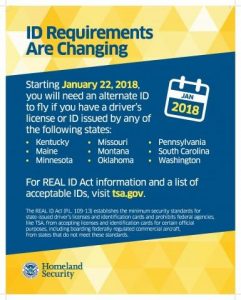Is the U.S. government monitoring social media?
Yes. Since December 2016, all visitors to the U.S. under the “Visa Waiver Program” (VWP) have been asked to identify the social media IDs they use to the Department of State on the online ESTA form. In several recent notices in the Federal Register, and in official statements in response to questions about those notices, the Department of Homeland Security has confirmed that it already searches for and reviews information about individuals from social media.
Why is the U.S. singling out immigrants and visitors for this surveillance?
The U.S. government is targeting foreigners first because they are legally more vulnerable. Under U.S. law, foreign visitors and immigrants have often been held to have fewer rights than U.S. citizens. We don’t think this is the way it ought to be, and we don’t think this is even a correct reading of the U.S. Constitution and the human rights treaties that the U.S. has ratified. But this is often the way that courts have ruled. Most acts of terrorism in the U.S., like most crimes of any sort, are committed by U.S. citizens. Most of those criminals are white, and most of them are Christian, not that this should matter either. In practice, the government knows that it is more likely to be able to get away with surveillance of foreigners — on social media or in any other realm — than with surveillance that targets U.S. citizens equally or that focuses on, say, white Christian nationalist domestic sources of terrorism.
The Federal government also appears to be motivated by a profound xenophobia. It regards foreigners, communications or association with foreigners, and foreign travel as per se suspicious and thus as justifying more intrusive search, seizure, interrogation, interference, etc. Instead, these activities should be seen as the exercise of rights recognized and protected by Federal laws, the First Amendment and other provisions of the U.S. Constitution, and international treaties. As such, they should be specially protected, not subjected to special surveillance.
Does this social media surveillance include U.S. citizens and green-card holders?
Yes. Social media is, by definition, social. It’s about connections and communication between people, not individuals in isolation. Social media networks aren’t defined by national borders. (Except in countries like China where repressive government block access to “foreign” social media to keep their citizens isolated from the thinking of the rest of the world.) Even if only non-U.S. persons are targeted, surveillance of social media will inevitably suck in information about U.S. citizens and permanent residents who are “associated” with foreigners on social media. Whoever you are, that probably includes you. Do you know which of your Facebook “friends” or Twitter followers or the people who post comments on your page are U.S. citizens or permanent U.S. residents, and which of them aren’t? We don’t, and we don’t believe the U.S. government does either. There is no way that government agents, whether human or robotic, could contain social media surveillance to foreigners even if they tried. The rights of U.S. citizens and permanent residents will be collateral damage whenever foreigners are attacked.
Is this limited to people who are suspected of immigration violations or other crimes?
No. What is being practiced already, and what is being expanded, is dragnet social media surveillance. The Department of State is already asking every applicant for admission to the U.S. under the VWP for their social media IDs. The social media surveillance authority claimed by the DHS, and the practices described in its recent notices, are not limited to specific persons of interest. The DHS and other law-enforcement agencies already have the authority to subpoena records from social media service providers if there is probable cause for suspicion that any crime has been committed, including but not limited to criminal violations of U.S. immigration laws. What’s happening now and expanding is additional surveillance of people who are not (yet) under any particularized suspicion.
The U.S. government’s interest in social media can best be understood in the context of other programs of automated suspicionless dragnet surveillance. The NSA collects metadata about the movement of our messages from telephone companies and and Internet service providers. The DHS collects metadata about the movements of our bodies from entry/exit and border crossing logs and reservation records obtained from airlines, Amtrak, and other travel companies. Why not add metadata about our associations and activities on social networks — IDs, posting histories, keywords and tags, social network maps, etc. — to that data lake?
If I’m not doing anything wrong, do I have anything to worry about?
Yes. Activities that are legal in the U.S. may be illegal in other countries, and the U.S. government claims the right to share the fruits of social media surveillance, and the blacklisting and other conclusions drawn from them, with other governments around the world. Activities that are legal today could become illegal tomorrow. People with whom you are associated, but who you may not know and may never have met, may come under suspicion in the future. Any information the government has can be used against you. Things that you say or people with whom you are “associated” on social media say could result in your being assigned a pre-crime predictive “risk score” that leads to your being placed on a government blacklist (“watchlist”) or subjected to other government sanctions, even if you are never suspected or accused of any crime. The algorithmic criteria for blacklisting, the data used as the basis for blacklisting decisions, and the lists themselves are all secret. You know you are on a blacklist only when you are unexpectedly prevented from exercising your right to travel or other rights. Read More →
